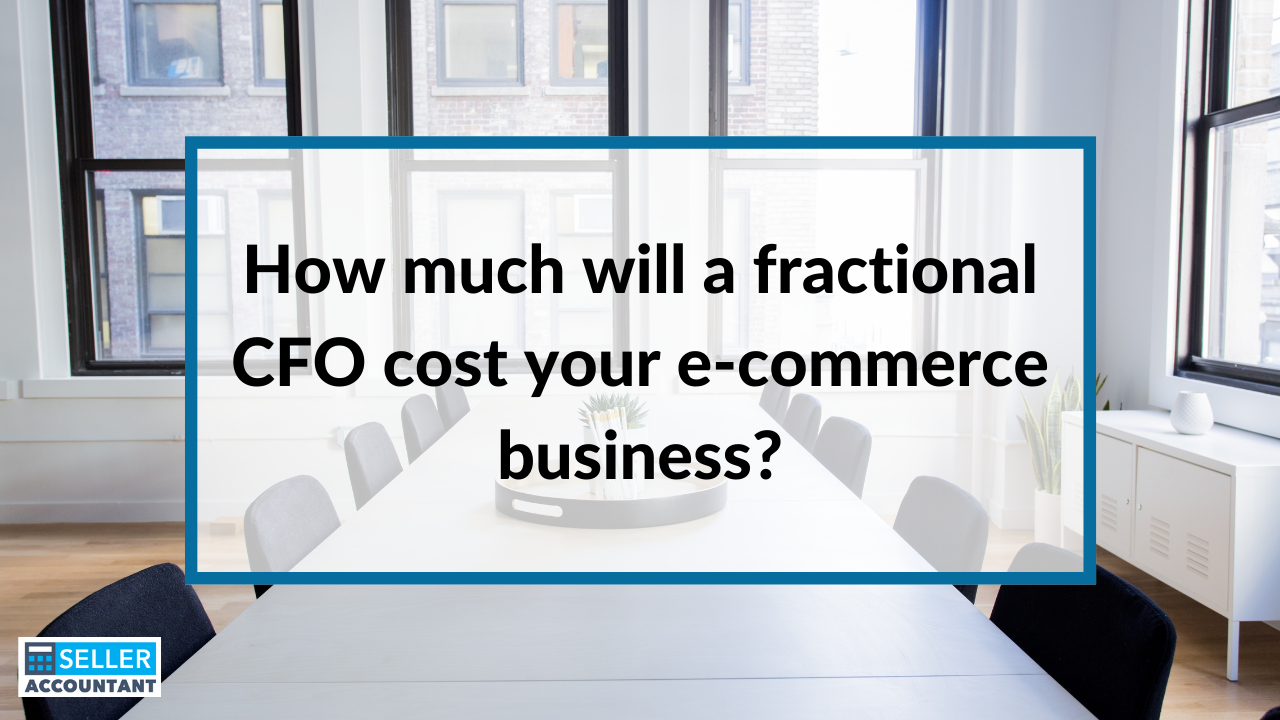When we explained the role of a fractional CFO on last week’s post, you may have been left thinking, “But how much should I expect to pay for that kind of specialized service?”
The short answer is that on average, a fractional CFO can cost between $3,000 and $10,000 per month, with most small to mid-sized business paying $5,000-7,000 per month, according to Preferred CFO.
Yes, a fractional CFO service is an investment, but compared to hiring a full-time CFO who requires a salary and benefits, “you can easily save >60% by outsourcing to a part-time CFO” (Driven Insights).
Tyler explains why a fractional CFO is worth the investment and what affects CFO service pricing.
Why outsource?
Now that you’ve heard about the pricing model, let’s break down why a fractional CFO might make more economic sense for your company than hiring a full-time CFO.
ROI
If you’re looking at these services from an hourly standpoint, the hourly rate for a fractional CFO is higher than that of a full-time staff member. (It should be stated that Seller Accountant charges a flat monthly rate and does not bill hourly.)
However, recruiting a CFO who understands not only the financial intricacies of e-commerce as a whole but also of your business’s specific niche in the industry is a challenge, and an expensive one at that. A full-time CFO earning a competitive salary and benefits could cost your business between $150k and $250k per year.
Financial Control
In addition to the cost of hiring and retaining top-level CFO talent, you now have a single employee with significant control over your small business. Having to fire or part ways with them for any reason could be financially devastating.
On the other hand, an outsourced partner is the best of both worlds. You can guarantee your outsourced CFO will be knowledgeable about e-commerce by shopping around niche-specific agencies, and their contract will be much easier to cut ties with if need be. Without the financial burden of a salary plus benefits, it makes economic sense to hire an outsourced CFO.
What should you look for in a quality CFO?
Once you decide to outsource to a CFO service, you’ll need to keep a few key traits of a quality CFO in mind.
- A strong e-commerce accounting background so they can ensure your financials are in order, even amid the data complexity of the e-commerce environment
- A focus on brands the same size and slightly larger than yours. You’ll want to look for someone who has helped slightly larger brands succeed so you know they’ll be able to help you maintain growth.
- Strong strategic advisory skills. Some accountants, whose primary goal is compliance, do offer advisory services, but their advice is closer to that of a controller than a CFO. These advisors can tell you exactly where your money is going, but a true strategic CFO will be able to look beyond the numbers and set goals for your business and help you plot a course towards profitability.
What drives the cost of a CFO service
Much like we did in our Cost of Accounting series, let’s break down some common elements that affect the pricing of an outsourced service.
- How complex is the business? – How many products do you sell? Do you purchase product from multiple sources, and are any of them overseas? Do you have multiple business partners? How many bank accounts does your business have, and how many lines of credit are you working to pay down?
- How clean is your existing accounting? – Easy-to-read financials allow your CFO to be more efficient with their analysis, costing you less in the long run. (Want to learn to create your own investor-grade financials? Try our DIY course!)
- How easy is it to access your data? – The harder your advertising and inventory data is to access, the less effective your CFO is able to be. Choosing systems that work with one another and that make your data readable and accessible is a huge step in optimizing your business for an outsourced service.
- How often do you want to meet with your CFO? – This is self-explanatory: more meetings = higher cost (as a tradeoff for transparent communication and up-to-date information).
When does it make sense to hire an outsourced CFO?
While you may feel ready to go hunting for a CFO today, it’s important that you weigh the cost vs. benefits at your business’s current size.
If you’re too small, the expense of an outsourced CFO won’t make financial sense. For example, if you’re a $100k seller looking to double your profits to $200k, you may be tempted to hire a CFO to help you get there. But given the inherent cost of the service, the profits you gain won’t outweigh what you paid for the advisor.
Conversely, a million dollar seller looking to scale to $2 million or a $500k seller trying to expand to $5 million in the next two years will definitely need the expertise of a CFO to meet those goals, and they have the existing capital to hire one.
If you’re interested in the methods CFOs use to advise their clients but aren’t ready to hire one, check out our CFO Tactics course on Teachable.
When you decide to outsource to a fractional CFO, the process (and the expense) can seem overwhelming. But following the principle that sometimes you need to spend money to make money, remember that you are investing in expert perspective, coaching, counsel, and advice. No one truly succeeds alone, but if you’re smart, you can build a support system that makes you feel confident in your financial decisions and helps you reach your business goals.

